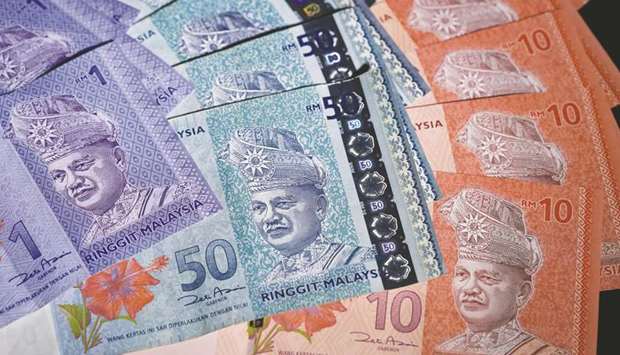For bulls, Bank Negara Malaysia’s hawkish tilt this month and higher crude prices for the net energy-exporting nation are reasons to be optimistic. Others, including National Australia Bank, say that the election may complicate the timing for a rate hike, damping a key driver for the ringgit.
“The dollar has extended losses against the ringgit in recent weeks on the back of expectations that Bank Negara may hike rates and also as inflows into emerging markets have remained reasonably strong,” said Callum Henderson, head of global markets research at Eurasia Group in Singapore. “The timing of the election and how the election impacts economic expectations will be important” to Malaysian rate wagers, he said.
Wall Street’s consensus is that the ringgit will unwind some of its 9% gain this year and slip to 4.20 against the dollar by end of March – underscoring analysts’ caution over an election that has to take place by August. While a stronger currency would bolster claims of sound economic management, Najib may be reluctant to have the nation’s first rate hike since 2014 occur before a poll.
The premier hasn’t announced an election date, though deputy Ahmad Zahid Hamidi said earlier this month that those who think the poll will take place more than 180 days from now are “out of touch with reality.”
Najib has been bolstered by an improving macro-environment, with the economy expanding at its fastest pace in more than three years. The ringgit bounced back from a 19-year low in January to emerge as Asia’s second-best performer in the past three months. Global funds are also warming up to the debt as Brent’s ascent to a two-year high supports government finances.
Bank Negara gave the currency a boost when it said on November 9 it may consider reviewing the degree of monetary accommodation. The proponents for a stronger ringgit, including Schroder Investment Management and Western Asset Management Co, share a similar expectation – that a rate hike could happen in the first quarter.
“Now we know that the bias is going to be more toward that hawkish side, so that will be very good for the currency,” said Rajeev De Mello, head of Asian fixed income in Singapore at Schroder Investment, which oversees $543bn. “Another positive for the currency is the oil prices, which are very good for natural gas exports for Malaysia.”
Western Asset sees room for the ringgit to gain on a probable rate hike in January, and on the strength of Malaysia’s current-account surplus, said Wontae Kim, a Singapore-based analyst at the money manager which oversees about $435bn.
Others predict that Bank Negara will delay tightening. DBS Group Holdings points out that an interest rate increase before an election may offset some of the stimulus from the October budget. It expects a poll in the second quarter, with the rate hike to follow. One indication on the timing for the polls is that Najib will try to avoid the rainy season – which lasts from November to January – as the weather may hurt turnout.
“The first half of 2018 could see a confluence of factors that could prove negative for the ringgit,” said Julian Wee, a senior market strategist at National Australia Bank.
“These include the general election domestically, an accelerated climb in US bond yields and a possible slowing of Malaysia’s economic growth.”
NAB predicts the ringgit will drop to 4.40 per dollar by year-end, compared with the median forecast in a Bloomberg survey of 4.20. The currency reached 4.0965 on Thursday, the highest in more than a year.
Still, strength in the dollar looms as a challenge for emerging markets, with the Federal Reserve expected to raise rates three times next year and US tax reforms in the works.



